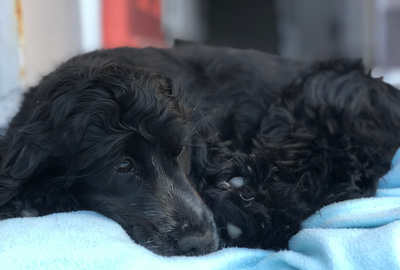Out of our comfort zone
How do we turn disruption into meaningful long-lasting change for the good?

29 April 2021
‘It is time to do things differently.’ Over the last year, it has been refrain I have heard a lot – and one I have embraced too.
Personally, after many years of talking up my desire to get a dog, I realised during the pandemic that my reasons for delaying were all forms of procrastination. So, as I type this column my five-month-old cocker spaniel is sat snoozing by my feet (but always with one eye on her food bowl). Has she disrupted my life more than I anticipated? Absolutely. And I would not have it any other way.

And, as readers, you will be aware that OT has dedicated thousands of online and print column inches to the ever-evolving impact of the pandemic for optometrists, practice teams and patients. Our dedicated coronavirus section continues to expand – if there is a topic you would like us to explore, get in touch.
This month alone, we have launched our in-depth ‘COVID-Generation’ special report, where OT’s senior reporter Kimmy Young investigates the disruption current students and pre-registration optometrists have experienced, and what the wider implications might be for the way optometry is taught to future generations.
When change comes at speed it is rarely comfortable, and this sense is caught with clarity by Alex Howard, clinical governance and performance lead for Primary Eyecare Services, talking to OT’s Selina Powell.
“At the beginning, it was scary – you almost forget how scary it was because we just didn’t know what the virus was or whether we were putting ourselves at risk. I feel really proud about the way that a lot of people stepped up to the plate,” explained Howard, who helped to design and coordinate the roll out of the COVID-19 Urgent Eyecare Service (CUES) in Derbyshire.
In the months to come, much work will be needed to sift through and weed out the inefficient and ineffective workarounds born out of necessity during the pandemic, while also attempting to seize on the gains and the progress the pandemic has driven to recalibrate practice management.
As an optometrist told me in a roundtable discussion in partnership with SpaMedica, COVID-19 has “pushed us out of our comfort zone as clinicians, and we have stepped up and shown what we can do. We must not lose the momentum and get complacent – we need to look for the opportunities, pre-empt them and adapt.”


Comments (0)
You must be logged in to join the discussion. Log in